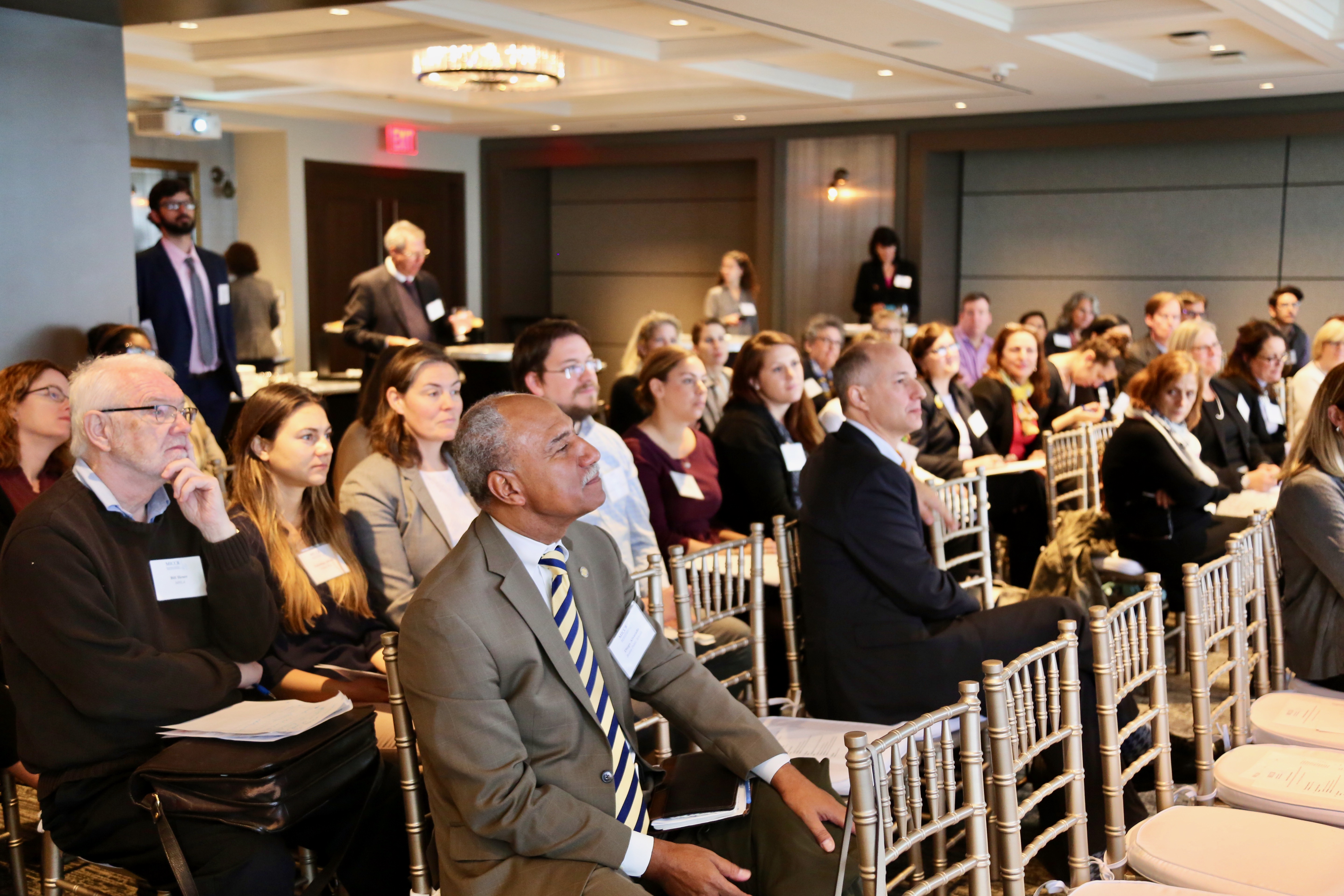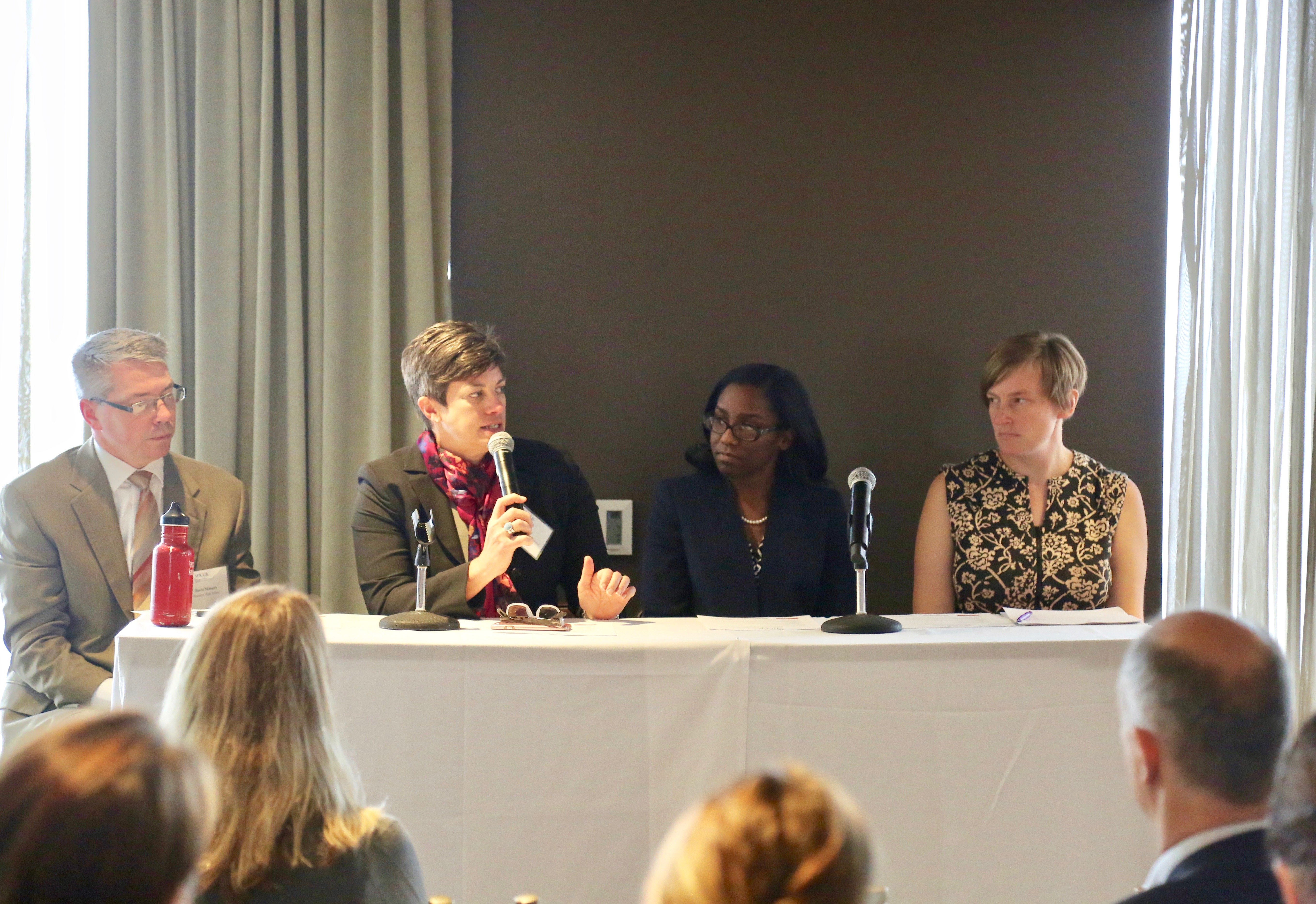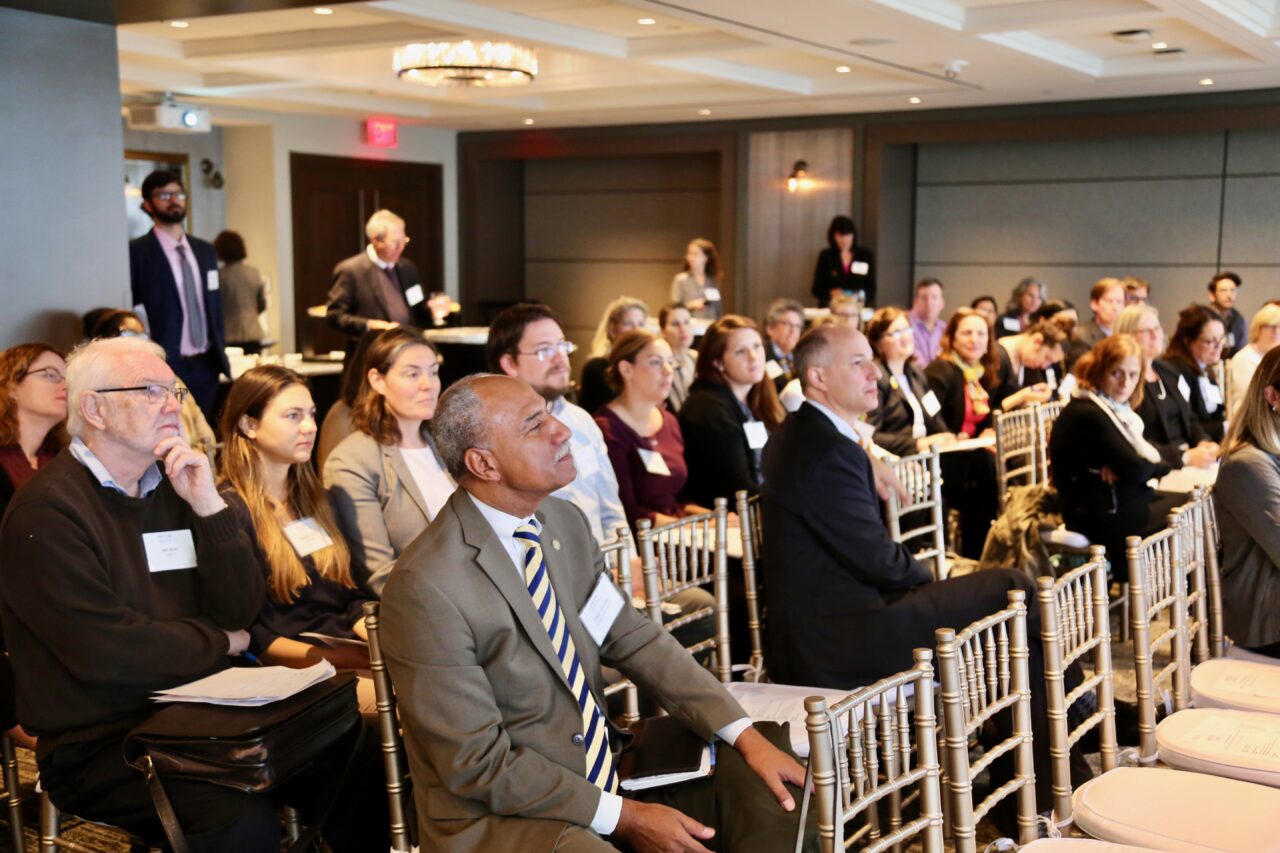
Education leaders and policymakers gathered in downtown Boston to hear about early efforts to build research-practice partnerships (RPPs) through the Massachusetts Institute of College and Career Readiness(MICCR), a collaborative effort led by the Rennie Center, Boston University, and MassINC, with support from the Institute of Education Sciences (IES).
MICCR paired researchers up with 14 participating Gateway City school districts. These volunteer senior academic researchers were selected from universities across the US. Over the past three years, the Gateway City districts and their affiliated researchers worked together to design, implement, and evaluate a variety of college and career readiness interventions. During the forum, educators from three districts involved in the project shared reflections on lessons-learned.
Carrie Duff, Principal of the Leominster Center for Excellence, described efforts to gauge how well her school’s Individual Learning Plans (ILP) supported students’ long-term aspirations for academic and life success and the impact of internship experiences, a central feature of the school. Working with MICCR Senior Research Fellow, Michelle Knight Manuel, the Leominster team found evidence that the ILP helped students set goals for the future and chart a course for achievement. Moreover, the internships were a supportive learning experience that enhanced student’s learning of career opportunities and skills.
David Mangus, a biotechnology teacher at Brockton High School presented on MICCR’s work evaluating the district’s Youth Career Connect program, a pilot initiative, which provides academic training and support and experiential learning opportunities to foster STEM skills and career interests. The program is collaboratively designed and implemented by the Brockton Public Schools, Brockton Area Workforce Investment Board, Massasoit Community College with support from Jobs for the Future. In collaboration with their MICCR Senior Research Fellows, Peter Eley and Dante Tawfeeq, the Brockton team measured the impact of Youth Career Connect on student achievement through interviews with student and educators and a review of outcomes.
 Emily Ullman, Director of Expanded Learning and Partnerships at Salem Public Schools presented on efforts to build cultural competency among high school faculty through a participatory action research model. In collaboration with her MICCR Senior Research Fellow, Katherine Bruna, the team worked with 10th grade faculty to establish research questions and collect data. Projects showed meaningful student gains in academics and resulted in educators reporting increased connections to students and capacity to address challenges. The work of the partnership evolved and resulted in a district wide training in cultural competence supported by Facing History and Ourselves, and continues as part an element of Salem’s strategic plan to increase family/community engagement
Emily Ullman, Director of Expanded Learning and Partnerships at Salem Public Schools presented on efforts to build cultural competency among high school faculty through a participatory action research model. In collaboration with her MICCR Senior Research Fellow, Katherine Bruna, the team worked with 10th grade faculty to establish research questions and collect data. Projects showed meaningful student gains in academics and resulted in educators reporting increased connections to students and capacity to address challenges. The work of the partnership evolved and resulted in a district wide training in cultural competence supported by Facing History and Ourselves, and continues as part an element of Salem’s strategic plan to increase family/community engagement
While the three-year IES grant that provided seed funding to establish MICCR is coming to an end, many of the Gateway City districts involved continue to work collaboratively with their researchers to evaluate and modify their interventions, shedding new light on effective practice and the power of RPPs.
